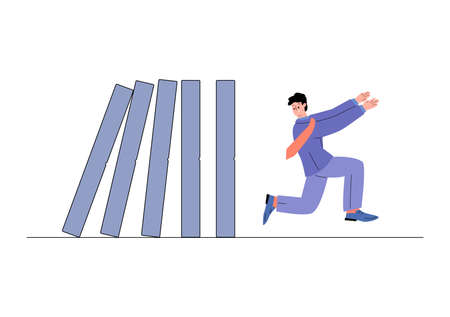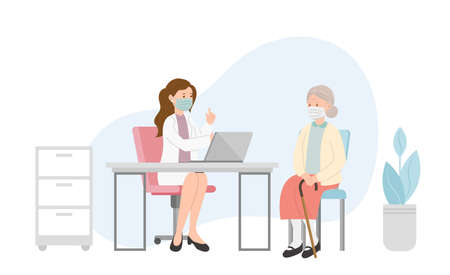Introduction to Holistic Care in the UK
In the United Kingdom, healthcare has long been shaped by a deep commitment to person-centred values and evidence-based practice. The integration of physical therapy and psychological care is increasingly recognised as a cornerstone of holistic health support, especially within the NHS and community settings. This approach acknowledges that individuals are more than just their physical conditions; emotional wellbeing plays an equally vital role in recovery and quality of life. By bringing together physiotherapy and psychological support, UK practitioners can offer care that responds to both the body and mind, reflecting the nation’s values of compassion, dignity, and respect for each person’s unique experience. As we move towards more integrated models of care, it becomes clear that balancing these two dimensions is not only best practice but also essential for truly effective rehabilitation and long-term wellbeing.
2. Understanding the Interplay Between Physical and Mental Health
In the context of long-term care, especially within the UK’s diverse communities, recognising the intricate relationship between physical and mental health is essential for providing truly holistic support. For many individuals living with chronic illnesses or disabilities, the effects of their physical condition can extend far beyond the body, touching every aspect of emotional wellbeing. Similarly, ongoing psychological distress can manifest physically, sometimes complicating rehabilitation or daily self-care.
Recent evidence from UK-based studies highlights that those experiencing mobility limitations or chronic pain are at a significantly higher risk of developing symptoms of depression or anxiety. Conversely, persistent low mood or stress can impede physical recovery, reduce motivation to participate in physiotherapy sessions, and even exacerbate underlying medical conditions. This cyclical connection underscores the necessity for integrated care approaches that address both domains simultaneously.
Local Perspectives: Voices from Long-Term Care
Feedback from service users, carers, and clinicians across England, Scotland, Wales, and Northern Ireland consistently points to a need for joined-up services. Many report that when physical therapy is coordinated with access to psychological support—such as talking therapies or peer support groups—the outcomes are noticeably improved. There is also growing appreciation for culturally sensitive approaches that reflect local values and expectations around health and wellbeing.
Key Impacts of Physical Conditions on Mental Wellbeing
| Physical Condition | Potential Impact on Mental Health | UK Community Perspective |
|---|---|---|
| Chronic Pain | Increased risk of depression; social withdrawal | Often managed better when community support networks are involved (e.g., local pain clinics) |
| Mobility Issues | Anxiety about independence; loss of confidence | Access to adapted sports or social clubs can improve outlook and participation |
| Long-Term Illness (e.g., stroke) | Feelings of frustration or hopelessness; isolation | Peer-led recovery groups found in many NHS Trusts provide valuable encouragement |
The Reverse: How Psychological Distress Affects Physical Health
- Reduced Motivation: Low mood may decrease engagement with physiotherapy exercises.
- Poor Sleep: Anxiety or depression often lead to sleep disturbances, which slow physical healing.
- Lifestyle Factors: Stress may trigger unhealthy habits such as overeating or inactivity.
- Pain Perception: Emotional distress can heighten sensitivity to pain.
Towards Integrated Support in Long-Term Care
The interplay between mind and body is not just theoretical—it shapes everyday experiences for those receiving long-term care. By acknowledging these connections and drawing on local insights, practitioners can better tailor their approaches, combining physical rehabilitation with psychological care to foster resilience and hope.

3. Practical Strategies for Integrated Therapies
Integrating physiotherapy and psychological care is increasingly recognised as essential within the UK’s health landscape, where patient-centred care and holistic wellbeing are highly valued. British practitioners often employ a range of practical strategies to blend these approaches, ensuring that both body and mind are supported throughout the rehabilitation journey.
Collaborative Goal Setting
One widely adopted method is collaborative goal setting, which involves patients actively in defining their recovery objectives. Physiotherapists and psychologists work together with individuals to set realistic and meaningful goals, encouraging motivation and empowerment. For example, a physiotherapist might help someone recovering from a knee injury outline physical milestones, while a psychologist provides techniques to manage anxiety about movement or re-injury.
Mindfulness and Relaxation Techniques
Many UK practitioners incorporate mindfulness practices into physical therapy sessions. This may include guided breathing exercises or progressive muscle relaxation at the start or end of physiotherapy appointments. Such techniques help reduce pain perception and foster a calm state of mind, improving both engagement and outcomes in physical rehabilitation.
Cognitive-Behavioural Approaches in Movement Therapy
Cognitive-behavioural therapy (CBT) principles are often woven into physiotherapy routines. For instance, when working with chronic pain patients, therapists might address unhelpful beliefs about pain through gentle discussion and education during exercises. These conversations help reframe negative thought patterns, making physical progress feel more achievable and less daunting.
Peer Support and Group Sessions
Group-based interventions are popular across many NHS trusts and community centres in the UK. By blending physiotherapy exercises with facilitated group discussions or peer support sessions led by clinical psychologists, participants benefit from shared experiences and mutual encouragement—key components of both physical recovery and psychological resilience.
These integrated strategies reflect an understanding that healing is multifaceted. Through collaborative care, British practitioners gently guide individuals towards greater independence, emotional comfort, and improved quality of life—one thoughtful step at a time.
4. The Role of Multidisciplinary Teams
Within the UK’s NHS and wider community settings, multidisciplinary teams are at the heart of integrated care for individuals requiring both physical therapy and psychological support. These teams bring together professionals from diverse backgrounds, ensuring that care is holistic and person-centred. Collaboration among allied health professionals—such as physiotherapists, occupational therapists, speech and language therapists, psychologists, and social workers—enables a more comprehensive approach to rehabilitation and wellbeing.
Highlighting Team Collaboration in Practice
The NHS has long championed team-based approaches to complex health needs, understanding that no single professional can address every aspect of a person’s recovery. Regular case discussions, shared care plans, and joint goal-setting sessions are standard practices within many trusts and community services. This approach fosters clear communication, reduces duplication of effort, and helps families feel supported at every stage.
Unique Roles of Allied Health Professionals
| Professional | Primary Role in Integrated Care |
|---|---|
| Physiotherapist | Supports physical function, mobility, and pain management through tailored exercise programmes. |
| Occupational Therapist | Promotes independence in daily living activities by adapting environments and routines. |
| Speech & Language Therapist | Addresses communication difficulties and supports safe swallowing where needed. |
| Psychologist | Offers psychological assessments and therapies to manage mood, motivation, and adjustment issues. |
| Social Worker | Coordinates access to community resources and provides advocacy for patients’ broader social needs. |
Nurturing Collaborative Care
When these professionals work together—whether in hospital wards, outpatient clinics, or people’s homes—the focus shifts from isolated treatments to integrated pathways that honour each individual’s physical health and emotional wellbeing. In this way, the NHS sets a compassionate standard for balancing physical therapy with psychological care, fostering hope and resilience for patients and their loved ones.
5. Supporting Families and Carers
Families and carers are the cornerstone of long-term care, especially in the UK where compassion and companionship are central values. Balancing physical therapy with psychological care is not only about the individual receiving support, but also about those providing daily help and encouragement. When families and carers feel supported, they are better equipped to nurture both the physical rehabilitation and emotional wellbeing of their loved ones.
Advice for Families and Carers
It is important for families and carers to seek guidance from health professionals regarding both physical therapy routines and emotional support strategies. Engaging in open communication with therapists and care teams ensures that everyone understands the goals and challenges involved. Regular updates, clear instructions, and collaborative planning help reduce anxiety and build confidence in delivering care at home.
Emotional Support: The Heart of Care
Compassionate listening remains a fundamental aspect of supporting someone through recovery or long-term illness. Taking time to share feelings, celebrate small achievements, and acknowledge frustrations can make a significant difference. Peer support groups, often available through local charities or the NHS, offer a safe space for carers to connect with others facing similar situations, reducing feelings of isolation.
Practical Tips for Everyday Balance
Establishing gentle routines that blend physical exercises with moments of relaxation can ease stress for everyone involved. Small acts—like sharing a cup of tea after a physiotherapy session or taking a short walk together—reinforce the ethos of companionship so valued in UK communities. Don’t hesitate to ask for practical help from friends, neighbours, or respite services; caring is a shared responsibility, not a solitary journey.
Above all, remember that you are not alone. The UK’s tradition of community spirit means support is never far away. By embracing integrated approaches that honour both body and mind, families and carers can provide balanced, compassionate care that truly makes a difference.
6. Case Studies from the UK
Across the UK, integrated approaches to care are making a meaningful difference in people’s lives. Here are a few examples that highlight how blending physical therapy and psychological support can benefit both individuals and care teams.
Supporting Stroke Recovery in Manchester
At a community rehabilitation centre in Manchester, a multidisciplinary team worked with Mr. Evans, who was recovering from a stroke. Alongside daily physiotherapy exercises to regain movement in his arm, he attended regular sessions with a clinical psychologist. These sessions helped him process feelings of frustration and fear about his independence. The combined approach not only improved his mobility but also boosted his confidence to participate in social activities again.
Empowering Older Adults in Kent
In Kent, a local GP surgery collaborated with occupational therapists and mental health practitioners to support Mrs. Patel, an older adult coping with chronic arthritis pain and low mood. Physical therapy focused on gentle exercise routines, while group workshops addressed anxiety and provided peer support. The integrated plan empowered Mrs. Patel to manage her pain more effectively, reducing her reliance on medication and enhancing her sense of wellbeing.
Holistic Care for Young People in Glasgow
A youth health project in Glasgow paired sports physiotherapists with counsellors to help young people recovering from sports injuries. For example, after a football injury, 17-year-old Jamie received physical rehabilitation alongside emotional support to cope with worries about returning to play and pressure from peers. This partnership helped Jamie rebuild both his physical strength and self-esteem.
Collaboration Within NHS Trusts
NHS Trusts across the UK increasingly recognise the benefits of collaborative care. In Sheffield, an NHS Trust piloted a scheme where physiotherapists and psychologists held joint clinics for patients with persistent back pain. Patients reported feeling heard, supported, and motivated to stick with their recovery plans—proving that addressing both body and mind leads to better outcomes.
Learning from Each Other
These real-life stories from different parts of Britain show that integrating physical and psychological care is more than just a theory—it’s a compassionate practice that helps people live fuller, more connected lives.
7. Resources and Further Guidance
Seeking the right support is essential when balancing physical therapy with psychological care. In the UK, a wealth of resources are available to help patients, carers, and professionals navigate this integrated approach. Below is a signpost to trusted organisations and services that offer guidance, information, and community connections tailored to British needs.
NHS Services and Information
The NHS remains the cornerstone of healthcare provision in the UK. For physical therapy and mental health support, patients can consult their GP for referrals or visit NHS.uk for comprehensive advice on physiotherapy, counselling services, and self-management tools. The NHS also provides directories for local services, including psychological therapies (IAPT) and rehabilitation clinics.
Key UK Charities
Mind
Mind offers guidance on mental health challenges associated with long-term physical conditions. Their helplines and local branches provide practical support and signposting for both individuals and carers. Visit mind.org.uk for more details.
Versus Arthritis
This charity supports those living with musculoskeletal conditions, offering tailored advice on combining physical rehabilitation with emotional wellbeing. Explore their resources at versusarthritis.org.
The Stroke Association
The Stroke Association delivers practical information on stroke recovery, including integrated care approaches that blend physiotherapy with psychological resilience building. Visit stroke.org.uk for guides, helplines, and peer networks.
Local Support Groups
Connecting with others who understand your journey can be invaluable. Many communities across England, Scotland, Wales, and Northern Ireland host support groups focused on rehabilitation and mental health. Your GP surgery or local council website often lists nearby options; you can also find online communities via charities such as Age UK or Carers UK.
For Professionals
Healthcare professionals can access further training in integrated care through the NHS Leadership Academy (leadershipacademy.nhs.uk) or professional bodies like the Chartered Society of Physiotherapy (csp.org.uk). These organisations offer research updates and best practice guidelines specific to the UK context.
If you are seeking personalised advice or feel unsure where to begin, remember that reaching out—whether to a GP, charity helpline, or support group—can be the first step towards a balanced approach to care. Compassionate help is never far away within the UKs supportive network.

